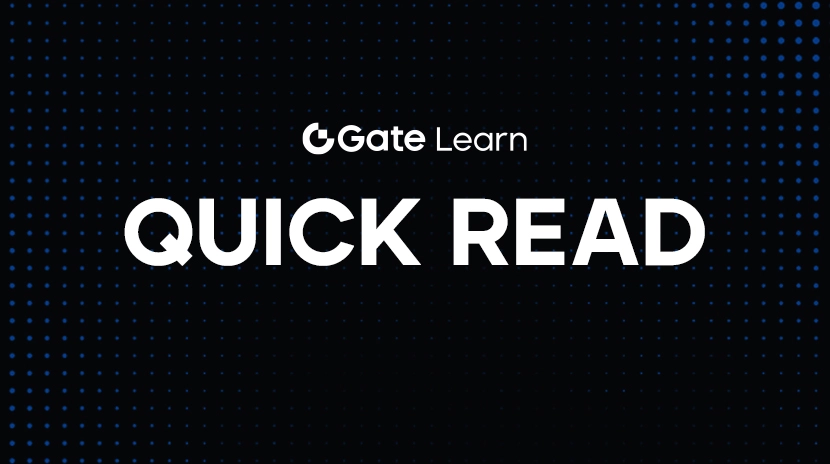What Is DeFi? A Beginner’s Guide to Decentralized Finance
What is Decentralized Finance?
DeFi is the abbreviation for “Decentralized Finance”. In Chinese, it is translated as “去中心化金融”. In short, it is a system that provides financial services without relying on centralized institutions (such as banks or brokerages). Most DeFi projects run on blockchain networks, especially the Ethereum ecosystem, with its core being the use of smart contracts to automatically execute and manage financial transactions.
Traditional finance relies on intermediaries, while DeFi implements rules through code, allowing users to interact directly with protocols, thereby facilitating peer-to-peer financial activities.
How DeFi Works
The core technologies of Decentralized Finance (DeFi) include the following points:
- Blockchain: DeFi projects are primarily deployed on public, transparent, and immutable blockchains to ensure the safety of funds and the openness of rules.
- Smart Contracts: A piece of code that can be executed automatically to replace intermediary institutions. For example, in a DeFi lending platform, borrowing rules, interest rates, and collateral management are all handled by smart contracts.
- Decentralized Wallet: Users interact directly with DeFi protocols using wallets (such as MetaMask) without the need to register an account.
- Decentralized tokens: including stablecoins (such as USDC), platform tokens (such as UNI), and collateral assets (such as ETH), which constitute the basic tools of the Decentralized Finance financial system.
The main application scenarios of Decentralized Finance
Decentralized Finance has developed a rich array of financial products, mainly including:
- Lending platforms: such as Aave and Compound, users can collateralize assets to borrow stablecoins.
- Decentralized Exchange (DEX): such as Uniswap, SushiSwap, provides token trading without registration.
- Stablecoins: such as DAI, USDC, provide a stable unit of account for cryptocurrency assets.
- Yield Farming: Users earn rewards by providing liquidity.
- Aggregator: such as Yearn Finance, helps users automatically optimize investment strategies.
The difference between DeFi and traditional finance
Decentralized Finance and traditional finance have essential differences in structure and logic.
- DeFi is decentralized, which means it does not rely on any banks, brokers, or other intermediaries, but rather executes financial operations automatically through smart contracts. In contrast, traditional finance relies on a strict centralized structure, where users must complete transactions through banks, trusts, or financial companies.
- In terms of accessibility, DeFi is more open. Anyone with a crypto wallet, regardless of nationality or credit history, can almost freely participate. In contrast, traditional finance usually requires users to register a real-name account, provide identification, and undergo credit checks, which creates higher barriers and more complicated procedures.
- Transparency is also a major difference. All transaction records and contract rules in DeFi are public, and users can view each operation through a blockchain explorer. In contrast, the internal workings of traditional finance often lack transparency, making it difficult for users to understand how institutions are using their funds.
- In terms of operating hours, DeFi is available 24/7, with no downtime. Users can trade or lend at any time and from anywhere. In contrast, traditional financial institutions usually have set business hours and may not provide services on weekends and holidays.
- In terms of risk-bearing, DeFi leans more towards “self-risk-taking”; if there are vulnerabilities in the smart contract or operational errors, users bear all the consequences themselves. In contrast, in the traditional financial system, banks or brokers usually provide customers with a certain level of protection, such as fund custody, insurance, or accountability mechanisms.
Overall, DeFi is more open, transparent, and efficient, but it also requires users to have a higher level of risk awareness and operational skills. For newbies, understanding these differences helps to explore this decentralized world more safely.
The advantages and risks of Decentralized Finance
Advantages:
- Openness: Anyone can use Decentralized Finance services with just a wallet.
- Globalization: Unrestricted by geography, participation is free.
- High efficiency: Transactions and lending do not require waiting for approval.
- Innovation: DeFi continuously introduces new mechanisms, such as liquidity mining and composable protocols.
Risk:
- Smart contract vulnerabilities: Coding errors may lead to theft of funds.
- Liquidity risk: Some assets may be difficult to liquidate during market fluctuations.
- High price volatility: Token value fluctuations may cause asset losses.
- Regulatory ambiguity: Policy uncertainty may affect user rights.
How can newbies participate in Decentralized Finance?
- Prepare a wallet: Download and install browser wallet extensions like MetaMask and Gate Wallet.
- Acquire crypto assets: Purchase commonly used tokens such as ETH and USDT through exchanges (like Gate).
- Connect to DeFi protocols: Access mainstream DeFi platforms such as Aave, Uniswap, and more.
- Exercise caution: Do not authorize casually, use well-known projects, and avoid phishing links.
- Continuous learning: Stay updated with DeFi-related news, participate in community discussions, and enhance your judgment.
Related Articles

Pi Coin Transaction Guide: How to Transfer to Gate.io

What is N2: An AI-Driven Layer 2 Solution

Grok AI, GrokCoin & Grok: the Hype and Reality

How to Sell Pi Coin: A Beginner's Guide

Crypto Trends in 2025
